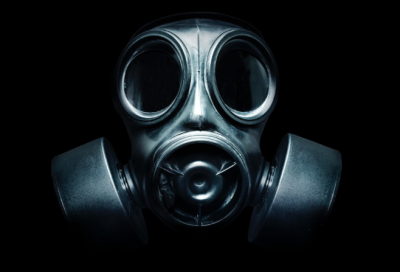Navalny Poisoned by Novichok Hoax Timed Ahead of Russian Elections?

Germany’s failure to disclose novichoking medical evidence it claims about Alexey Navalny’s condition strongly indicates there is none.
Notably his August 20 illness happened ahead of Russian regional and local elections at 83 locations, scheduled for September 11 – 13.
On September 9, Russian Central Election Commission (CEC) chairwoman Ella Pamfilova said the following:
“I can now report with confidence…on the complete readiness of Russia’s electoral system for the single (Unified Election Day) voting…on September 13 and on the preceding days of September 11 and 12” for early voting.
Tass reported that elections “will take place at 83 Russian entities, with over 78,000 mandates involved.”
Tatarstan, Kursk, Penza and Yaroslavl regions will hold lower house State Duma elections.
Eleven regions will elect local legislators, 18 regions to hold elections for governors, 22 regions to elect municipal representatives, and “26 entities will vote on local self-governance bodies’ membership.”
“Heads of the Nenets Autonomous Region and the Khanty-Mansi Autonomous Area will be elected by the deputies of local legislative assemblies,” Tass explained.
In July, Russia’s upper house Federation Council and lower house State Duma passed legislation amending election laws to permit voting for three days.
The new measure doesn’t affect the procedure for absentee ballot voting that remains unchanged.
In late August, Tass reported that “3,590 people (took) part in the test run of the online voting procedure that will be used during the Russian State Duma (lower house) election in the Yaroslavl and Kursk regions planned for September.”
On July 3, Tass said “77.92% of (Russian) voters supported” new election procedures for voting on constitutional amendments.
Last March, CEC head Pamfilova said voting on constitutional amendments would not be combined with September elections because “these are two completely different campaigns, regulated by different laws.”
Earlier, spokesman for the Federal National Guard Troops Service (FNGTS) Valery Bribakin explained the following on how public order and security would be maintained for upcoming regional and local elections, saying:
“Almost 6,500 response units of the FNGTS extra-departmental guards with a total number of more than 13,000 employees will be involved.”
“The response units’ patrol routes will be shifted closer to event venues on the single voting day, which will considerably shorten the time of the units’ arrival.”
“The territorial bodies of the Federal National Guard Troops Service will also additionally involve more than 7,000 employees of the extra-departmental service, most of whom will ensure security in the areas of election polls in cooperation with law enforcement officers.”
“Security will be fully provided in cooperation with the law enforcement authorities.”
Ahead of Russia’s March 2018 presidential election, Radio Sputnik interviewed geopolitical analyst Alex Christoforou.
He noted the suspicious timing of Britain’s claim about what happened to Sergey and Yulia Skripal, falsely accusing Russia of poisoning them with a novichok nerve agent, presenting no corroborating evidence because there was none.
Was the incident an attempt to diminish support for Putin in an election he was virtually certain to win overwhelmingly?
“Putin will win the election, and we will see what happens after that,” said Christoforou, separately adding:
He’s “one of the few statesmen, one of the few measured leaders who works in a very measured and calculated diplomatic way to resolve a lot of issues that are on the world stage, as opposed to a lot of flamboyant and outrageous rhetoric we’re hearing from some of the other major powers in the West.”
The Skripals incident had no noticeable effect on Putin’s reelection bid, winning overwhelmingly by a near-77% majority.
Turnout was strong at 67.4%. Putin’s better than expected victory margin and high turnout perhaps was in response to popular displeasure over false UK-led Western accusations of what happened to the Skripals.
Post-election, Putin explained if anyone was exposed to military-grade nerve agent, they “would have died on the spot,” adding:
“Russia does not possess such agents. We have destroyed all our chemical arsenals under control of international observers.”
Blaming Russia for the Skripal incident is “utter nonsense,” he stressed. No one “in Russia would allow such a stunt (especially) ahead of presidential elections and the World Cup. It’s unthinkable.”
On Wednesday, the Wall Street Journal headlined: “With Navalny Sidelined, Russia’s Opposition Seeks to Deal a Blow to Putin,” saying:
“Local (Russian) elections could show whether (what happened to) Kremlin critic Alexey Navalny has cowed the opposition or energized it.”
While nothing is certain pre-election, perhaps 2018 results are indicative of how things will turn out on Russia’s September 13 Unified Election Day.
As for Moscow’s relations with the US-dominated West, things continue to deteriorate, the Navalny incident the latest example.
Support by Britain, France, Germany and the EU for preserving the JCPOA nuclear deal with Iran over strong US opposition is a notable exception to the rule.
*
Note to readers: please click the share buttons below. Forward this article to your email lists. Crosspost on your blog site, internet forums. etc.
Award-winning author Stephen Lendman lives in Chicago. He can be reached at [email protected]. He is a Research Associate of the Centre for Research on Globalization (CRG)
His new book as editor and contributor is titled “Flashpoint in Ukraine: US Drive for Hegemony Risks WW III.”
http://www.claritypress.com/LendmanIII.html
Visit his blog site at sjlendman.blogspot.com.

